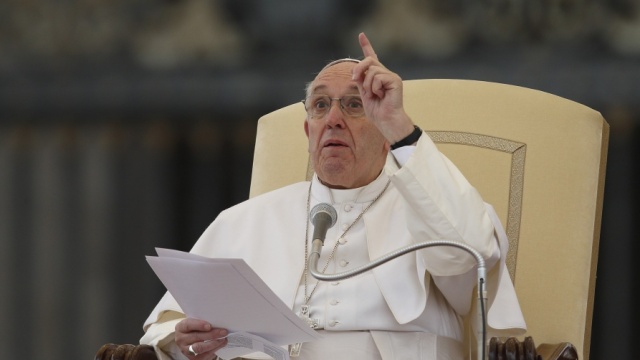

Deacon-structing Mercy: We are not God
Deacon Pedro
Sunday, February 7, 2016

"The Sacred Scripture presents God as infinite mercy, but also as perfect justice", How can the two be reconciled? They may appear to be contradictory, but this is not the case, as it is precisely God's mercy that leads us to achieve true justice. In the legal administration of justice, we see that those who consider themselves to have been victims of abuse consult a judge in court and ask that justice be done. It is a retributive justice, inflicting punishment on the guilty, according to the principle that each person receives what he deserves. … But this route does not lead to true justice, as in reality it does not conquer evil, it simply limits it. Instead, only by responding with good can evil truly be conquered".
"This is the way of resolving conflicts within families, in relations between spouses and between parents and children, in which the injured party loves the guilty and does not wish to lose the bond between them. It is certainly a difficult path: it demands that the victim be disposed to forgive and wishes for the salvation and the good of the perpetrator of the damage. But only in this way can justice triumph, as if the guilty party acknowledges the harm he has done and ceases to do so, the evil no longer exists and the unjust becomes just, as he has been forgiven and helped to find the way of good".
"God does not seek our condemnation, only our salvation. God does not wish to condemn anyone! … The Lord of Mercy wishes to save everyone. … The problem is letting Him enter into our heart. All the words of the prophets are an impassioned and love-filled plea for our conversion".
"God's heart is "the heart of a Father Who loves all His children and wants them to live in goodness and justice, and therefore to live in fullness and happiness. A Father's heart that goes beyond our meagre concept of justice so as to open up to us the immense horizons of His mercy. A Father's heart that does not treat us or repay us according to our sins, as the Psalm says"."It is precisely a Father's heart that we encounter when we go to the confessional. Perhaps it will tell us something to better understand our evil, but at the confessional we all go in search of a father who will help us change our life; a father who gives us the strength to go on; a father who forgives us in God's name. Therefore, to be a confessor is a great responsibility, as the son or daughter who comes to you seeks only to encounter a father. And you, the priest there in the confessional, are the place where the Father does justice with His mercy."

Related Articles:
Category: Deacon-structing, Featured, General Posts, Jubilee of Mercy, Pope Francis
Tag: Catholic, Deacon Pedro, Deaconstructing, General Audience, justice, mercy, Pope Francis, Vatican Radio, Year of Mercy
The four types of novenas
Friday, July 25, 2025
 Maria Montemayor
Maria Montemayor
A novena (which comes from the Latin word novem, which means nine) refers to nine days of public or private prayer.
Lighting the candle of hope across generations
Thursday, July 24, 2025
 Julian Paparella
Julian Paparella
Amidst the uncertainties of the world, having kids is an act of hope in the future. It is a sign that life is still worth living and that the future bears promise despite the challenges it will bring.
Pray with the Pope Reflection – July 2025
Friday, July 11, 2025
 Fr. Edmund Lo, SJ
Fr. Edmund Lo, SJ
The Holy Father invites us to pray that we might again learn how to discern, to know how to choose paths of life and reject everything that leads us away from Christ and the Gospel.
Pray with the Pope Reflection – June 2025
Friday, June 13, 2025
 Fr. Edmund Lo, SJ
Fr. Edmund Lo, SJ
In this month of June, the Holy Father invites us to pray that the world might grow in compassion, that each one of us might find consolation in a personal relationship with Jesus, and from his Heart, learn to have compassion on the world.
Chaplaincy: “Divine Coffee” for Students
Tuesday, June 10, 2025
 Gianpaolo Capozzi
Gianpaolo Capozzi
Gianpaolo gives us a behind the scenes look at his upcoming Behold segment on the York University Catholic Chaplaincy.
SUPPORT LABEL
$50
$100
$150
$250
OTHER AMOUNT
DONATE










